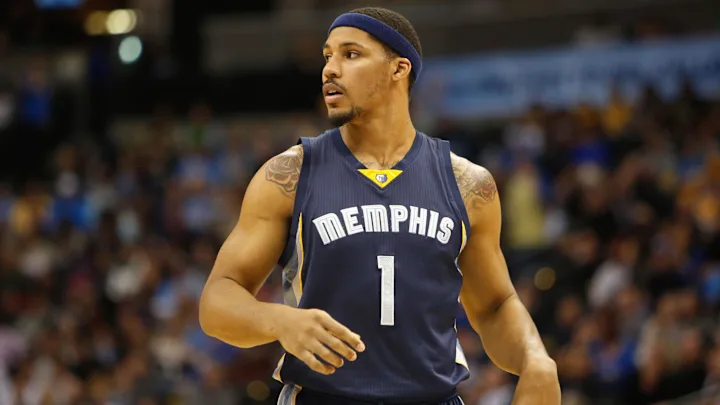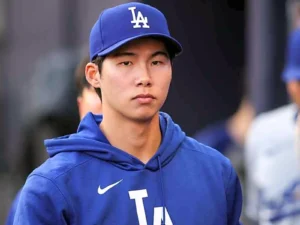
Former NBA and Vols Star Jarnell Stokes Brings New Film ‘Rocky Top College’ to Life, Spotlighting Tennessee Basketball’s Culture and Legacy
Former Tennessee Volunteers standout and NBA forward Jarnell Stokes has worn many titles in his life—athlete, author, entrepreneur—but now, he’s adding filmmaker to his résumé. His latest project, Rocky Top College, is a powerful, deeply personal film that pays tribute to the culture, legacy, and overlooked nuances of Tennessee basketball, both on and off the court.
The documentary, which debuted to an enthusiastic crowd in Knoxville this spring, is more than just a nostalgic look back at Stokes’ own college days. It’s a bold, artistic exploration of what it means to wear the orange and white jersey, of growing up in Tennessee’s complex basketball environment, and of how sports and identity intersect in ways that continue to shape young men long after the buzzer sounds.
A Vision Born in Knoxville
Jarnell Stokes first arrived at the University of Tennessee in 2012 as a homegrown hero from Memphis, where he had been one of the top-rated high school players in the country. His arrival midseason as an early enrollee was highly publicized and carried weighty expectations. In just three years with the Vols, Stokes helped lead the team to a Sweet 16 appearance in 2014 and cemented himself as one of the most dominant big men in program history.
But the roots of Rocky Top College go deeper than highlight reels and box scores.
“I’ve always felt that there was more to tell,” Stokes said during a Q&A session following the film’s premiere. “Not just about me, but about the journey—what it means to grow up in Tennessee and be molded by this program. There are a lot of untold truths, moments of doubt, perseverance, culture clashes, and joy that never made it into the headlines.”
That sense of purpose drives the film’s narrative. Part documentary, part autobiographical meditation, Rocky Top College blends archival footage, interviews, and dramatic reenactments to paint a vivid picture of life inside the Tennessee basketball machine—from the back roads of Memphis to the iconic Thompson-Boling Arena in Knoxville.
Beyond the Court: Mental Health, Identity, and Brotherhood
One of the film’s most impactful elements is its focus on the emotional and mental toll that comes with being a high-profile college athlete. Stokes doesn’t shy away from discussing the pressure he felt as a teenager thrust into a national spotlight. Nor does he sugarcoat the challenges of navigating a campus culture that didn’t always understand the realities faced by Black athletes.
“There were times I felt like I was living two different lives,” Stokes said. “One as this big-time athlete who everyone looked up to, and another as a young man trying to figure out who he was.”
Stokes explores themes of mental health, imposter syndrome, and institutional support systems—or the lack thereof. In candid interviews, former teammates and coaches share their perspectives on the demands placed on student-athletes and how Tennessee’s basketball program evolved to support or fall short of those needs.
Former Vols head coach Cuonzo Martin, who appears prominently in the film, speaks on his relationship with Stokes and the broader systemic pressures on young Black athletes in the SEC.
“What Jarnell’s doing with this film is important,” Martin says. “It’s not just a story about hoops. It’s a story about life.”
A Cultural and Historical Journey
In addition to his personal story, Rocky Top College also traces the broader arc of Tennessee basketball’s history—highlighting key figures, legendary games, and overlooked moments that shaped the program.
From the pioneering days of Bernard King and Ernie Grunfeld in the 1970s, through the Bruce Pearl era, and into the modern resurgence under Rick Barnes, the film draws a throughline connecting past and present. It reflects on how Tennessee’s basketball identity has been shaped by both triumph and controversy, by regional rivalries and national ambitions.
Stokes includes rare behind-the-scenes footage from the 2014 NCAA Tournament run, as well as interviews with fellow Vols legends like Chris Lofton, Tobias Harris, and Admiral Schofield.
“Rocky Top is more than a fight song,” Stokes says in the film’s voiceover. “It’s a mindset, a community, a challenge. And for a lot of us, it was also a second chance.”
The Filmmaking Process: A New Challenge
The idea for the film had been simmering in Stokes’ mind for years, but it wasn’t until after his professional playing career wound down that he began seriously pursuing it. He enrolled in film workshops, hired a team of producers and editors, and spent over 18 months developing the project.
Shot across multiple Tennessee locations—including Memphis, Knoxville, and Nashville—Rocky Top College combines traditional documentary elements with stylized narrative segments, some of which are reenacted by young actors portraying Stokes and his peers during their formative years.
Stokes says he was inspired by projects like The Last Dance, Ava DuVernay’s When They See Us, and even the cinematic style of Spike Lee. He wanted to blend sports storytelling with cinematic flair—“something that feels as much like art as it does biography.”
Community Reception and Future Distribution
The film’s premiere at the Bijou Theatre in Knoxville drew a sold-out crowd of alumni, fans, media, and former teammates. The emotional energy in the room was palpable, with many attendees visibly moved during segments dealing with race, identity, and personal growth.
“It’s powerful. It’s raw. It’s necessary,” said one fan after the screening. “You don’t often see this kind of honesty from athletes, especially about their college years.”
Stokes has said he plans to submit Rocky Top College to several national film festivals and hopes to land a streaming deal in the coming months. Early conversations have taken place with platforms such as ESPN+, Amazon Prime Video, and even Netflix, though nothing has been finalized.
“We want this film to live beyond Knoxville,” he said. “This is a Tennessee story, yes—but it’s also an American story. It’s for anyone who’s ever chased a dream, stumbled, gotten back up, and kept going.”
The Bigger Picture: Empowerment Through Storytelling
For Stokes, Rocky Top College is more than just a film—it’s a platform. He hopes it encourages current and future athletes to take control of their own narratives and to explore creative avenues beyond sports.
“Too often, we get boxed in,” he said. “People think, ‘You’re just a basketball player.’ But we’re more than that. We’re thinkers, creators, leaders. I want young athletes to see that it’s okay to tell your story your way.”
To that end, Stokes has launched a mentorship initiative alongside the film, aimed at helping high school and college athletes explore storytelling, media production, and entrepreneurship. His company, Stoked Films, is also working on a short film series based on athlete transitions from college to professional life.
A Full-Circle Moment
Looking back, Stokes says returning to Knoxville to premiere Rocky Top College was deeply meaningful.
“It feels like I’m finally finishing something I started years ago—not on the court, but in my heart,” he said. “Tennessee gave me the stage. Now, I’m using that stage to lift up others and tell the truth about what it means to grow, fail, and succeed.”
For Vols fans, the film is a gift. For Tennessee basketball, it’s a milestone. And for Jarnell Stokes, it’s just the beginning of a powerful new chapter.
Rocky Top College is not just a documentary. It’s a heartfelt, unflinching exploration of one man’s journey—and the shared legacy of a program that helped shape him. In bringing this story to life, Jarnell Stokes isn’t just preserving history; he’s making it.





